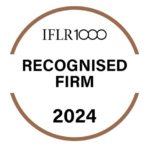Introduction
As 2021 draws to a close, it brings with it the sunset of the London Interbank Offered Rate (LIBOR) which is the most widely used interest rate benchmark in the world including here in Kenya. Alive to this fact, the Central Bank of Kenya (CBK) has published the Guidance on LIBOR Transition (the Guidance) to guide banks, microfinance banks and mortgage finance companies during the transition.
LIBOR Discontinuation
LIBOR is an average of the rates submitted by banks participating in the London interbank lending market based on their assessment of the rate they would pay to borrow funds at the London interbank lending market. LIBOR is published in five different currencies, namely the US dollar, Euro, Swiss franc, Japanese Yen, and British Pound. LIBOR has for a long time been accepted and used globally as a reference benchmark in various financial product instruments such as derivatives and loan documents.
In 2017, the Financial Conduct Authority (FCA) that regulates LIBOR resolved that it would cease to compel participating banks to contribute to LIBOR by the end of 2021. FCA will initially discontinue publication of LIBOR relating to the Euro, Swiss franc, Japanese Yen, British Pound and the 1-week and 2-month US dollar setting as from December 31, 2021 (Initial Libor Cutoff Date). The publication of the LIBOR for the remaining US dollar settings will be discontinued as from June 30, 2023 (Final Libor Cutoff Date). FCA took this decision due to the declining liquidity in the underlying markets and based on claims that LIBOR was prone to manipulation by participating banks.
LIBOR discontinuation necessitates adequate preparation by providers and consumers of financial products to navigate the potential implications of the discontinuation.
Aim of the Guidance on LIBOR Transition
To maintain a stable and efficient financial system in Kenya, CBK has been engaging institutions licenced by it to prepare for LIBOR transition. The Guidance is part of these efforts. The main provisions of the Guidance are set out below.
(a) Each institution should review existing financial product contracts to:
(i) determine the financial products that will be impacted by the LIBOR transition;
(ii) assess whether the contracts relating to LIBOR-linked products have in place adequate interest rate benchmark transition provisions such as the language used in the Loan Market Association (LMA) model agreements;
(iii) amend the contracts to adopt mechanisms such as the ISDA IBOR Fallbacks Protocol wherever possible; and/or
(iv) communicate with the relevant counterparties about the impact of discontinuation of LIBOR on the financial products including on issues such as pricing and increased costs etc.
(b) Depending on the base currency of a financial product, institutions should cease the issuance of LIBOR-linked financial products as from the Initial Libor Cutoff Date and the Final Libor Cutoff Date as the case may be and instead consider using alternative risk-free rates.
(c) Institutions should put in place proper governance frameworks and project management teams to oversee seamless LIBOR transition.
(d) Institutions should adopt adequate internal systems and infrastructure to:
(i) monitor developments of and challenges in alternative reference rates across the globe as well as in jurisdictional and international development affecting LIBOR reform;
(ii) communicate effectively to counterparties who will be affected by the LIBOR transition;
(iii) report to CBK information required from each institution in relation to LIBOR transition; and
(iv) identify and mitigate risks associated with LIBOR transition.
Conclusion
The Guidance notes that there has been progress in Kenya in the management of LIBOR transition. For resilience, the Kenyan financial industry should continue to adequately prepare for the transition. All participants including non-licenced financial institutions and consumers of financial products need to build capacity, train project teams and engage more to manage this transition project. We would also encourage providers and consumers of financial products to seek professional advice on LIBOR transition from LIBOR subject-matter experts.
If you have any queries regarding the banking and finance practice area generally, please do not hesitate to contact Peter Mwaura at pmwaura@mwc.legal. Please note that this e-alert is meant for general information only and should not be relied on without seeking specific subject matter legal advice.







